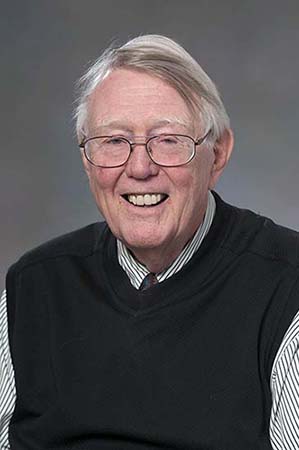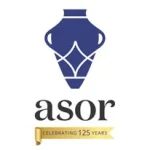
JOE D. SEGER PROJECT GRANTS
ASOR plans to award one Seger Project Grant of $2,500 during 2025.
Established in 2016 through generous gifts made by an anonymous donor and by friends and students of Joe D. Seger, The Joe D. Seger Excavation Grants are designed to support ASOR-affiliated excavation projects. Joe Seger has been a part of the ASOR family since the 1960’s, and he has served in numerous leadership positions. Notably, Seger served six years as ASOR President (1996-2003). He is a recipient of ASOR’s highest award, the Richard Scheuer Medal. Today, he continues his service through membership on the ASOR Board of Trustees.
The Seger Endowment provides modest grants to worthy field projects that are ASOR-affiliated, particularly to newer and smaller projects, to help them get started, and to discrete components of larger projects that can be completed with an award. Per the guidelines from the primary (and anonymous) donor to the endowment, the selection committee will give preference to an Principal Investigator (PI) who has received matching funds (normally $2,500 or more) from his or her institution or another funding source. The endowment funds are intended both to support a particular need for an archaeological project and to help the PI and the project secure matching funds. ASOR plans to award two Seger Grants of $2,500 each in 2025.
- Universal Grant Application
- Application Deadline: February 24, 2025
- Previous Recipients
- Questions: Please email Marta Ostovich.
Guidelines
1. Applications should be submitted by directors of ASOR-affiliated projects.
2. Only one application from a project will be funded in any given year. In addition, the Seger Selection Committee will give preference to excavation projects that have not received an ASOR Grant (Dana, Gold, Harris, or Seger) in the past three years.
3. Seger Project Grants are not designed to fund travel for student volunteers or junior staff members (see Scholarships for Fieldwork Participation).
4. Funds will be made available from the ASOR office, and recipients may receive a Form 1099 for the funds received. Certain restrictions apply for ASOR to distribute funds to an institution. Only direct expenses are permitted, and no indirect or overhead may be charged.
Apply for ASOR Affiliation for a Project
COVID disclaimer: If the ongoing COVID pandemic, or any other reason, does not allow for many archaeological excavations to take place during 2025, ASOR may at its sole discretion decide not to offer project grants. If ASOR deems such a decision as necessary, applicants may reapply for non-fieldwork summer stipends if ASOR can offer stipends for 2025. Regrettably, applicants and successful applicants may not postpone project grants to another year if the applicant or ASOR decides that project grants will not be awarded in 2025. If the pandemic or any other reason causes a cancellation of fieldwork in 2025, applicants must reapply for funding in 2026 (or for stipends if they can be made available in 2025).
Previous Grant Recipients: $22,500 awarded
2024: $5,000 awarded
- Khaled Abu Jayyab, University of Toronto, “Paths to Urban Growth in the Nineveh Plain”
- Asil Yaman, University of Pennsylvania, “Phoenix Archaeological Project”
2023: $2,500 awarded
- Mara Horowitz, Purchase College, SUNY, “Kalavasos-Laroumena and Arkhangelos Archaeological Research Project”
2022: $5,000 awarded
- Shawn Bubel, University of Lethbridge, “Final Analysis of the Chipped Stone Tools Excavated from Tel Beth-Shemesh”
- Darrell J. Rohl, Calvin University, “Religion and Society at Umm al-Jimal”
2021: $2,500 awarded
- John Oleson, University of Victoria, “Humayma Excavation Publication Project”
2020: $2,500 awarded
- Glenn Schwartz, Johns Hopkins University, “Umm el-Marra Publication Project”
2019: $2,500 awarded
- Kathryn Morgan, University of Chicago, “Chicago-Tubingen Expedition to Zincirli: Documenting a Middle Bronze Age Destruction”
2018: $2,500 awarded
- Patricia Fall, University of North Carolina at Charlotte, “Stable Isotope Analysis of Prehistoric Deer Feasting on Cyprus”


